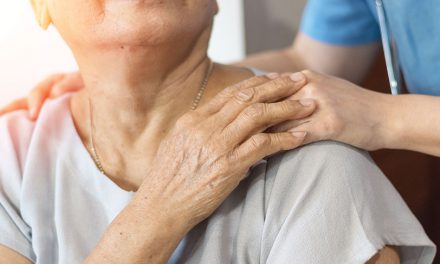To mark the new year we’ve created a series of blogs looking at what 2020 has in store for various elements of the region’s health and social care economy.
We start with James Wood, CEO of Community Pharmacy Surrey and Sussex, on behalf of East Sussex, West Sussex and Surrey Local Pharmaceutical Committees, who outlines opportunities and key areas of development for pharmacy over the coming year.
Community Pharmacy Surrey and Sussex supports, develops and promotes more than 550 NHS community pharmacies across the counties, with the aim of advancing the enhanced role of community pharmacy, ensuring it plays an active part in promoting health and wellbeing.
TCAM
While the purpose of this blog is to look forward to 2020, I’m going to start by looking back at one of key developments in 2019 – supporting the roll out of the Transferring Care Around Medicines (TCAM) initiative.
Led by KSS AHSN, we’ve worked with a range of partners to ensure that patients discharged from hospital can be referred through a safe and secure digital platform for advice from their local community pharmacist on how to manage their medicines with confidence.
The initiative has helped deliver our digital transformation to link hospitals and pharmacies, and reflects where the NHS says community pharmacies should be going in the Long Term Plan.
TCAM also offers exciting development opportunities – we understand that NHS England wants to explore how pharmacies will offer stop smoking support, when referred from another site, and it will be interesting to see how the TCAM system can help with that.
Developing collaborative leadership
One thing that TCAM has taught us is the importance of having a joined up approach across organisational boundaries. Collaborative working can often push ahead of the policy and financial drivers, as we’ve seen with TCAM. However, everyone has held their nerve and we’ve been able to get all parts of the health care system to understand why this is important and see it through.
Primary Care Networks
The need for such a collaborative approach will only increase in the future, and no less so with Primary Care Networks.
As part of their contract within the Pharmacy Quality Scheme, community pharmacies will need to demonstrate that they are collaborating at a PCN level.
This offers a new opportunity for pharmacists to work with general practice and think about how they can help practices meet local needs by optimising existing services, for example flu vaccinations, where so much more can be achieved by working collaboratively rather than in competition.
Taking pressure off urgent care and GPs
Collaboration will also be essential for developments within the Community Pharmacist Consultation Service. Outlined last October and being developed this year, this approach will see community pharmacy being recognised as the first call for minor illness.
Nationally we talk about 57 million GP consultations for minor illnesses, so there’s huge scope. We’ve already seen 95% of pharmacies across Surrey and Sussex sign up to take referrals from NHS 111 for minor illnesses and urgent prescriptions.
I’m confident that referrals from other services, such as A&E, 111 online and GPs will develop in the future.
Being recognised as able to support minor illness is an exciting development for pharmacists, and a great opportunity for them to use their clinical skills.
Med Safety
With NHS England phasing out Medicines Use Review service from community pharmacies by the end of 2020-2021 there will be the introduction of a new medicines reconciliation service to ensure changes in medication made in secondary care are implemented when a patient is discharged into the community. This will directly use and build on the TCAM pathway.
Many community pharmacies are also choosing to take part in the NHS Pharmacy Quality Scheme.
Among other factors, this will see them supporting prescribing quality initiatives, undertaking prescription audits and risk reviews to improve patient and medicines safety.
As this develops we will want to think about how we work with KSS AHSN and GP colleagues to get the best results for the system, and KSS AHSN will have a key role to play in bringing the interested parties together.
Embracing technology
As you’ll have realised by now, there are lots of service developments for community pharmacies in the coming year, however, they will still have to carry out their ‘day job’.
This is why pharmacies will be looking at processes and opportunities to create capacity, especially through the emergence of digital technologies.
Through 2019 we’ve been involved with the BP+ project, carrying out checks within pharmacies to find citizens living with undiagnosed Atrial Fibrillation and Hypertension.
Community pharmacists are key providers of that service, and KSS AHSN’s provision of the innovative AliveCor mobile ECG machines has been instrumental in its success.
We know that public health and detection will be a key role for pharmacies to develop, and there may be new routes of core testing that will require new tech and digital platforms.
TCAM and beyond
I’ve only really covered the tip of the proverbial iceberg in this blog – there really is a huge range of opportunities for community pharmacists in the coming year, and it’s key that we work across the health care system to maximise those opportunities.
Our work with KSS AHSN on TCAM over the last year has helped us to build relationships across a range of operations. We’ve truly seen the benefits of partnership and system working, and I know that we will use the lessons learned, and relationships forged, to deliver even more in 2020 and beyond.
Twitter: @CPSS_LPCs @jameswwood
Other blogs in this series:
- Rob Berry, Head of Innovation at KSS AHSN reflects on the AHSN Network’s evolving offer to health technology innovators
- Jo Congleton, Clinical Lead, KSS AHSN Respiratory Programme and Consultant in Integrated Care SCFT/BSUH
- Des Holden, Medical Director at KSS AHSN and Implementation Lead for the Applied Research Collaboration KSS, looks at the role of research
- Guy Boersma, Managing Director of KSS AHSN, discusses why 2020 must see a tipping point for digital and AI solutions in health and social care





